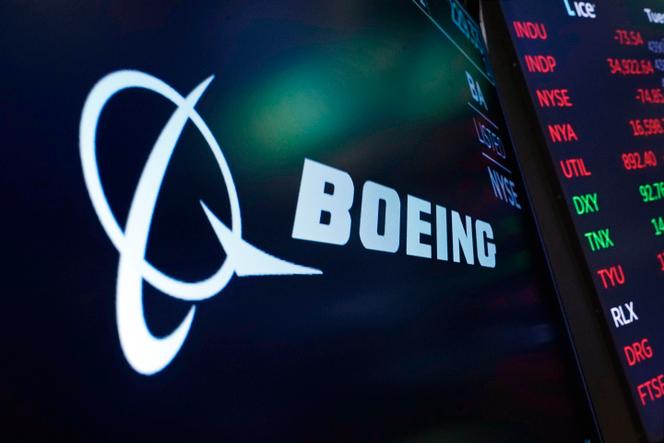


Boeing shares plunged by almost nine percent early on Monday, January 8, weighing on the Dow after the beleaguered manufacturer was forced to ground some of its 737 MAX fleet when an Alaska Airlines panel blew out mid-flight.
The aviation giant's woes pushed the Dow into the red to open a week that will also see key US inflation data, the kick-off of fourth-quarter earnings season and the Consumer Electronics Show.
About 20 minutes into trading, the Dow Jones Industrial Average was down 0.4% at 37,317.86. The broad-based S&P 500 advanced 0.3% to 4,710.09, while the tech-rich Nasdaq Composite Index gained 0.7% to 16,750.44.
Investigators are probing the Alaska Airlines jet that suffered the incident, which miraculously led to no fatalities or serious injuries.
On Friday, Alaska Flight 1282 departed from Portland International Airport and was gaining altitude when the cabin crew reported a "pressurization issue," according to the Federal Aviation Administration (FAA), with the plane quickly returning to Portland. Video images of the incident, which showed a gaping hole in the side of the plane, air rushing through the cabin, oxygen masks dangling and travelers observing city lights below them through the opening, were seen around the world.
Regulators grounded Boeing 737 MAX planes with similar configurations to the Alaska plane for inspections. The incident comes as Boeing has sought to turn the page after two deadly MAX crashes in 2018 and 2019.
National Transportation Safety Board (NTSB) chair Jennifer Homendy reported that a teacher she identified as "Bob" found the door plug, a cover panel used to fill an unneeded emergency exit, from the Alaska Airlines flight in his Portland backyard over the weekend. Homendy said it was "very, very fortunate" that the incident had not ended in tragedy.
The plane manufacturer late Sunday said its chief executive Dave Calhoun has set an all-employee safety meeting for Tuesday at the company's factory in Washington state. Aviation analysts said the issue appeared to be a quality control problem.
Scrutiny also hit shares of supplier Spirit AeroSystems, which builds key components for the planes. Shares of Spirit dove 15 percent, while Alaska Airlines dropped 4.2 percent.
The latest mishap could stem from the manufacturing of the door plug that came loose or bolts that were supposed to secure it, said Scott Hamilton of the specialized aviation news outlet Leeham News. "If it's indeed a quality assurance issue, whether it's in Spirit or at Boeing, I would say it's more than likely a narrow, quality assurance issue," he said, referring to Spirit, Boeing's main subcontractor. "I think this is more of a one-off anomaly than I would a systemic issue," he said.
But the incident could further delay Boeing's plan to ramp up production on the MAX, which is central to its financial turnaround. Boeing has reported losses in the last four years. In October, Boeing executives said they were focused on increasing output to 38 MAX planes per month. The aviation giant has said the production could eventually reach 60 per month, but that the ramp-up depends on bolstering the supply chain.
This week's calendar includes the December consumer price index report, which will be reviewed as to its implications for Federal Reserve policy. On Friday, JPMorgan Chase and a trove of other major US banks will release earnings, offering another reading on the economy.
